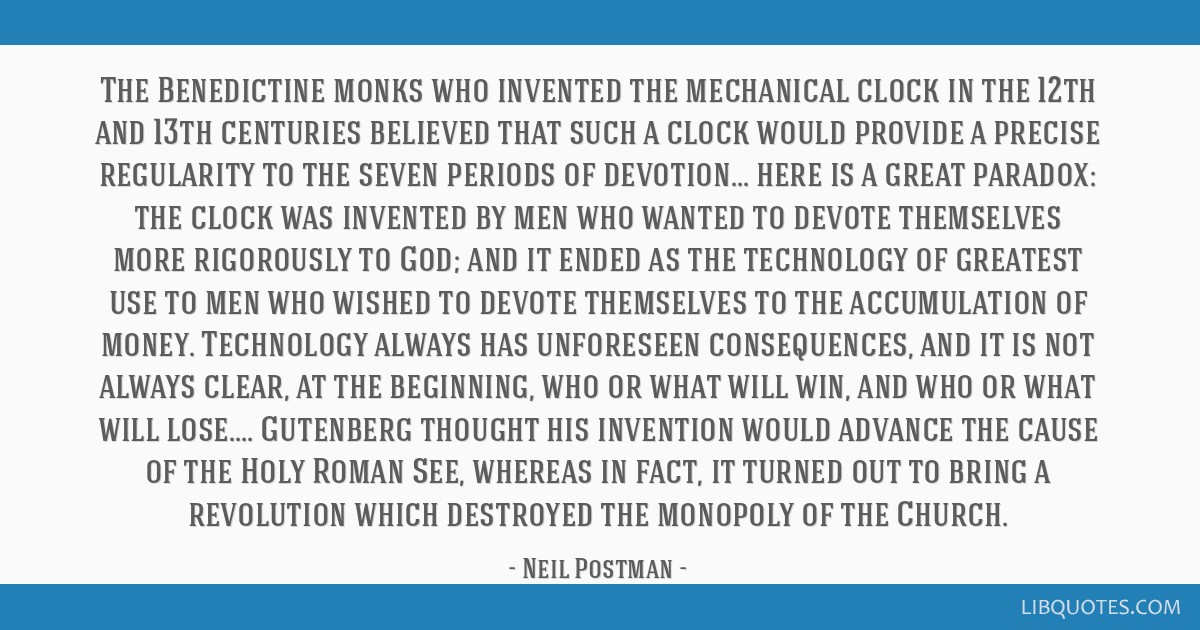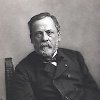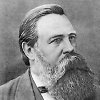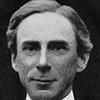The Benedictine monks who invented the mechanical clock in the 12th and 13th centuries believed that such a clock would provide a precise regularity to the seven periods of devotion... here is a great paradox: the clock was invented by men who wanted to devote themselves more rigorously to God; and it ended as the technology of greatest use to men who wished to devote themselves to the accumulation of money. Technology always has unforeseen consequences, and it is not always clear, at the beginning, who or what will win, and who or what will lose.... Gutenberg thought his invention would advance the cause of the Holy Roman See, whereas in fact, it turned out to bring a revolution which destroyed the monopoly of the Church.
Amusing Ourselves to Death: Public Discourse in the Age of Show Business (1985)





















